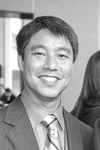
David Inoue
As our family has been in lockdown, we have been watching a lot of movies. This week, we saw the 1987 film “The Princess Bride,” which has the line in the title of this article. Unfortunately, this has become applicable to several people who have used the Japanese American experience to try to prove their point regarding policies in response to COVID-19.
The week of Feb. 19 was likely the last date many Japanese Americans attended a large public event before widespread concerns about COVID-19 led to shelter-in-place orders and the cancellation of March Madness and the postponement of the seasons for every major professional sports league. Feb. 19, of course, is the anniversary of President Franklin D. Roosevelt’s signing of Executive Order 9066.
Less than a month later, in a tweet, Rep. Thomas Massie (R-Ky.) would describe Roosevelt’s incarceration order as a “light touch” compared to the measures being taken today to prevent the spread of a deadly disease.
A month later, in a brief submitted in a Kentucky case challenging Gov. Andy Beshear’s statewide shelter-in-place orders as a violation of religious rights, plaintiffs similarly used Korematsu as a parallel infringement upon rights. Then this past week, Wisconsin Supreme Court Justice Rebecca Bradley recalled Korematsu as an example of government overreach.
In JACL’s statement in response to Bradley, Wisconsin Chapter President Ron Kuramoto said it eloquently and succinctly: “Bradley may believe that she is arguing Constitutional principles, but her claim of a nonexistent equivalency distorts the conversation and denigrates the history and experience of Japanese Americans.”
It is encouraging that what is common to all of these perspectives is that they universally recognize the wrong that was done to Japanese Americans during World War II. But what is also clear, especially from Rep. Massie’s tweet, is that none recognize the severity of what the incarceration did to the Japanese American community, nor the false pretense under which it was initiated.
It is undeniable that what we are going through now is painful and perhaps the most difficult situation many of us will ever face. However, it still pales in comparison to the unconstitutional actions of our government against Japanese Americans.
Japanese Americans were forcefully removed from their homes, their businesses were forced to close and they were sent to concentration camps for the duration of WWII.
Under the current orders, no one has had their property taken from them, nor has anyone been removed from their home or separated from their families because they lead the Buddhist church in the community.
Today, we see people protesting their right to eat at McDonald’s without wearing a mask or get their hair cut. The Kentucky case is on behalf of churches fighting for the right to worship in person. Comparatively, none of their ministers have been taken away to a Federal prison facility.
While we are being forced to give up some conveniences, our fundamental freedoms remain largely intact. Worship may be conducted differently, but the right to worship has not been taken away.
Where comparisons to WWII also fail is that the incarceration was based upon the lies of the government. Claims of military necessity were proven later to be fabricated, to hide a racist intent, that was actually not so hidden.
Unfortunately, there is much we still do not know about COVID-19. However, the policies being implemented are based on the assessment of those in the medical and public health community as what is needed to save lives and protect the public.
It is the science that is dictating the policy. This is all in the face of significant and strong opposition from even within the government itself, but at least that debate is taking place.
The success of our economy is important, and it is important to decide if the loss of life or the success of the economy is more important.
Perhaps most disturbingly absent from many of these comparisons to WWII is the lack of acknowledgement of the racist intent of the incarceration, as well as the culmination of years of xenophobia.
Unlike the broad policies to address COVID-19 that affect everyone, only Japanese American citizens were targeted by the incarceration on the basis of ancestry. No other citizens were similarly targeted.
This racist and xenophobic element is one aspect that has unfortunately continued on to the present day. Since February, the various sites collecting information on anti-Asian bias incidents have logged over 1,900 incidents. The imagery of some of these caught on camera or the injuries sustained are horrific.
Communities of color are being impacted disparately by the virus and the policies in place. It is not just Asian Americans being targeted.
The Jewish community has also faced conspiracy theories blaming Israel. Immigrants, in general, continue to be scapegoated, and this crisis is being used to push further anti-immigrant policies.
Many of those working in essential work functions, and more likely to be exposed to the virus, are from minority communities. We are seeing higher infection and mortality rates in many of these groups.
While the virus itself may be colorblind, the people being put at higher risk of infection, higher likelihood of death once infected or subject to targeting because of xenophobic beliefs that they are to blame, are being impacted disparately and selectively. So yes, there are valid comparisons from the Japanese American experience, but they are not the ones some people are seeking to make.
David Inoue is executive director of the JACL. He is based in the organization’s Washington, D.C., office.



